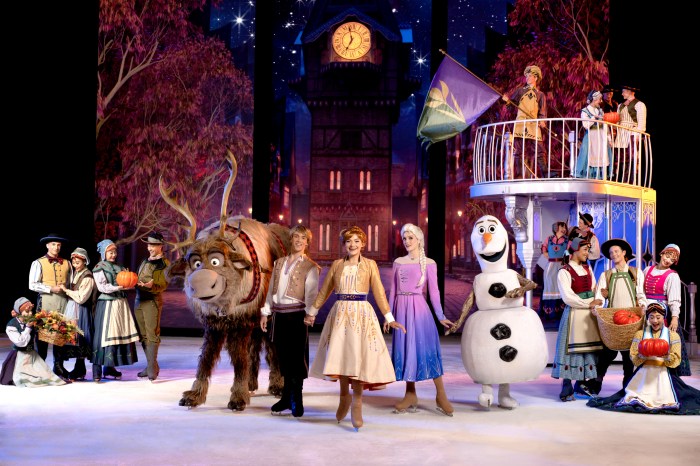By Leo Capobianco
Australian comedian Jim Jefferies is internationally known for his funny twist on trending topics, insult style of humor and his short-live TV series, Legit, which lasted two seasons on FX. His seventh comedy special, FreeDumb, is slated to debut on Nextflix July 1 and in the run up to that release, he’s taken his act back on the road, stopping at The Paramount in Huntington Friday, May 20. In advance of that show, Jefferies talked with the Press about why he’ll never sing again, his love of hate mail and how crushed he was when Legit was canceled.
Long Island Press: What is your first memory with comedy?
Jim Jefferies: Probably with stand-up. Probably with Eddie Murphy’s Delirious was my first movie. But with comedy comedy, I was a big Richard Pryor fan before I even knew he was a stand-up comedian, I used to watch all of his movies. I didn’t even know he did stand up until I was about 18. I used to watch movies like the The Toy and Brewster’s Millions and that type of stuff when I was a kid. Stir Crazy was another big film in my house. But stand-up was the very first thing I watched and that was Eddie Murphy’s Delirious. I was about 5 when I watched delirious, I was very young to be watching all of that stuff.
LIP: When did you decide to pursue comedy? Was there a specific event in your life that made you decide that this is what you want to do for a career?
JJ: I wanted to be a comedian probably since the age of maybe 13 or 14. I was really thinking that’s what I wanted to do. Growing up in Australia, there wasn’t a lot of comedy clubs and there weren’t a lot of comedians. I didn’t even know how to get started. So I went to university and studied musical theater. I was singing a lot at university and I got nodules on my vocal cords and they basically said, “you’ll never sing again.” I was genuinely upset about it but then I figured that this was a good excuse to start my stand-up career. I was about 23, no, 22 when I did that. So I went off and became a stand-up comedian. I’ve gotten some university out of the way to appease my parents. I don’t think I had the freedom to just do that straight out of high school, you know? Or the confidence—I’m not going to blame my parents—the confidence to do that was definitely a thing.
LIP: In your acts you address a lot of hot-button issues like gun-control, personal rights and things of that nature. Has it ever gotten you into trouble?
JJ: Only in the sense that sometimes the things I say up there, like my opinions, can be proven incorrect. There are always statistics that prove each point or each side. But, you can always give a statistic that makes your side sound better than their side. So it hasn’t really backfired in the sense that someone has yelled something out that makes me look stupid or something. But, I get a lot of heckling. I find that the hate mail is good because people are watching and there is a conversation happening and it’s making a lot of people angry. I realized a long time ago in stand-up that you don’t have to have a fan-base, you don’t have to entertain 89 percent of the population. In America you don’t even have a fan-base of one or two percent. Even if you turn on less than one or two percent of the public you can have a very good career. That’s all you need. You don’t want to be a global mess, boring kind of thing. You want a big cult. A cult means you’re playing to people that are like you. You know, I’m not like 89 percent of the population. I’m a one or two percenter myself. I just want to have people like me watching me. People that like to hear what I’ve got to say. So if I’m pissing off say, half the population, the other half don’t really give a shit either way and they don’t really think anything of it, that’s really cool for me.
LIP: What was your best day in comedy? Is there a specific time that you feel was the highlight of your career so far?
JJ: You could say Carnegie Hall was a good day. The day of my first HBO special was a pretty good day. But I think the best day I ever had in comedy was when I played the Beacon Theater last year in New York. It’s only like a 3,000-seat theater. It just felt like it was a really hard theater to get and the audience was so happy when I walked out. I remember that the first ever gig I ever did in America was supporting Denis Leary at the Beacon Theater where I did a bit for five minutes. So as far as theaters go I really admire it. It was an achievement that I actually reached. So that was my best day in comedy.
LIP: So would you say that was the moment where you felt like you’ve “made it?” Like you felt that you finally established yourself as a comedian?
JJ: Well, you never think you’ve made it, you know? But there was one day that I took an extra moment to smell the roses.
LIP: So, what was your worst day?
JJ: Probably when Legit was cancelled. Actually, that was the worst day by a mile. I produced a TV show that I enjoyed, it was a TV show that I really wanted to make. Everything came together just how I envisioned it. Sometimes even when you give it your best it’s still not good enough. Someone in an office somewhere will deem whether something is good enough. I’ll say without a doubt that it was good enough, I did deserve more seasons. I think the people who canceled it were wrong. I think now if you look on any web page, Metacritic, IMDB, Rotten Tomatoes, or whatever, you’ll see that it’s a highly rated show. People do like it, it was just never given enough time. It also never was advertised properly. Now that it’s on Netflix people are watching it and enjoying it. When it was cancelled it was heartbreaking. I just put so much work into it.
LIP: Are there any added pressures on your personal life as a result of your work? Is it hard being known as the funny guy?
JJ: The only added pressure on my personal life is the fact that I am constantly on the road. I’m away so much and that puts strain on a relationship of course. And also, I talk about my personal life on stage so you can upset people. To my girlfriend and my kid that I talk so much about on stage I always say to them, “Look, we live in a nice house, we drive nice cars, and the jokes have to come from somewhere and you guys are sitting at home. You just have to put up with it.” They actually reap the benefits. The people I feel sorry for are my parents that I tell jokes about or my brothers and sisters. They don’t get any of the money. I feel bad for them because they get picked on a lot on stage.
LIP: Do you have any advice for young comedians?
JJ: The secret to comedy is to write as much material as possible. Never rest on the 20 minutes that you’ve honed and skilled. There is an old-school theory in comedy that you need to hone and master joking. In my opinion, as soon as you get bored of a joke get rid of it. If you’re just going through the motions, get rid of it. And as soon as your record something, never say it again. That’s the secret, quantity. People want to see new stuff from me all the time. To become prolific don’t rest on the 20 minutes that you’ve written.
LIP: Are there any misperceptions people have about your work that you would like to clear up?
JJ: Yea, I think people think I’m a raving misogynist…I don’t think I am. That’s like someone saying, “People think I’m a racist but I’m not one” and then going into some racist chant. No but, I don’t think I’m really that bad. I don’t think I’m any worse than female comics that make jokes about their husbands or one that standing heavily guarded with a little dick. I don’t think I’m any worse than that. I’d like to think that in my actual life that I’m pretty respectful toward women and I’ve worked with many women. I don’t think I’m a misogynist. Now in saying that maybe I shouldn’t be saying so many misogynistic jokes and that I deserve some of the backlash that I get…For some reason it seems to me that the one people don’t remember is that I’m joking. With anything else people think I’m joking but when it comes to this they think I’m serious.
LIP: Are there any new TV shows/movies/etc in the works that we should be looking out for?
JJ: I got two scripts out at the moment at two different networks. I can’t really say anything about them. But, one is a live-action show where we do interviews and stuff like that. And the other show is a sitcom. Hopefully one of them will get the go-ahead. But I’m on No. five or six script development and only one of them has gone to series. I’m not optimistic. It’s a very hard road to get something going. It’s like winning the lottery five times in a row. You get the script, then you get the pilot, then you get the series, then you got to get the second season. Once you get to the third season, it turns into something that you get entrenched in and you can keep going. But, it’s a long road before any of these projects are being aired. I’d like to say that I’m optimistic but I’m not. But, I’m working on two things I’ll tell you that.
LIP: You talked about how you looked up to Eddie Murphy and Richard Pryor earlier. Are there any other people you looked up to?
JJ: George Carlin is my favorite comedian. But I didn’t get into him until I was in my 20s. It wasn’t like here in America where there is HBO specials and of this great stuff. In Australia, my only exposure to George Carlin as a teenager was when he played Rufus in Bill and Ted’s Excellent Adventure. If there is anyone I could emulate it’s him and I’ve had to stop watching him because I would copy him if I watched too much. It’s gotten to the stage where I like the guy so much I can’t watch any of him.
Funnyman Jim Jefferies will be cracking up The Paramount in Huntington on Friday, May 20. For tickets and more information, check out paramountny.com!

































